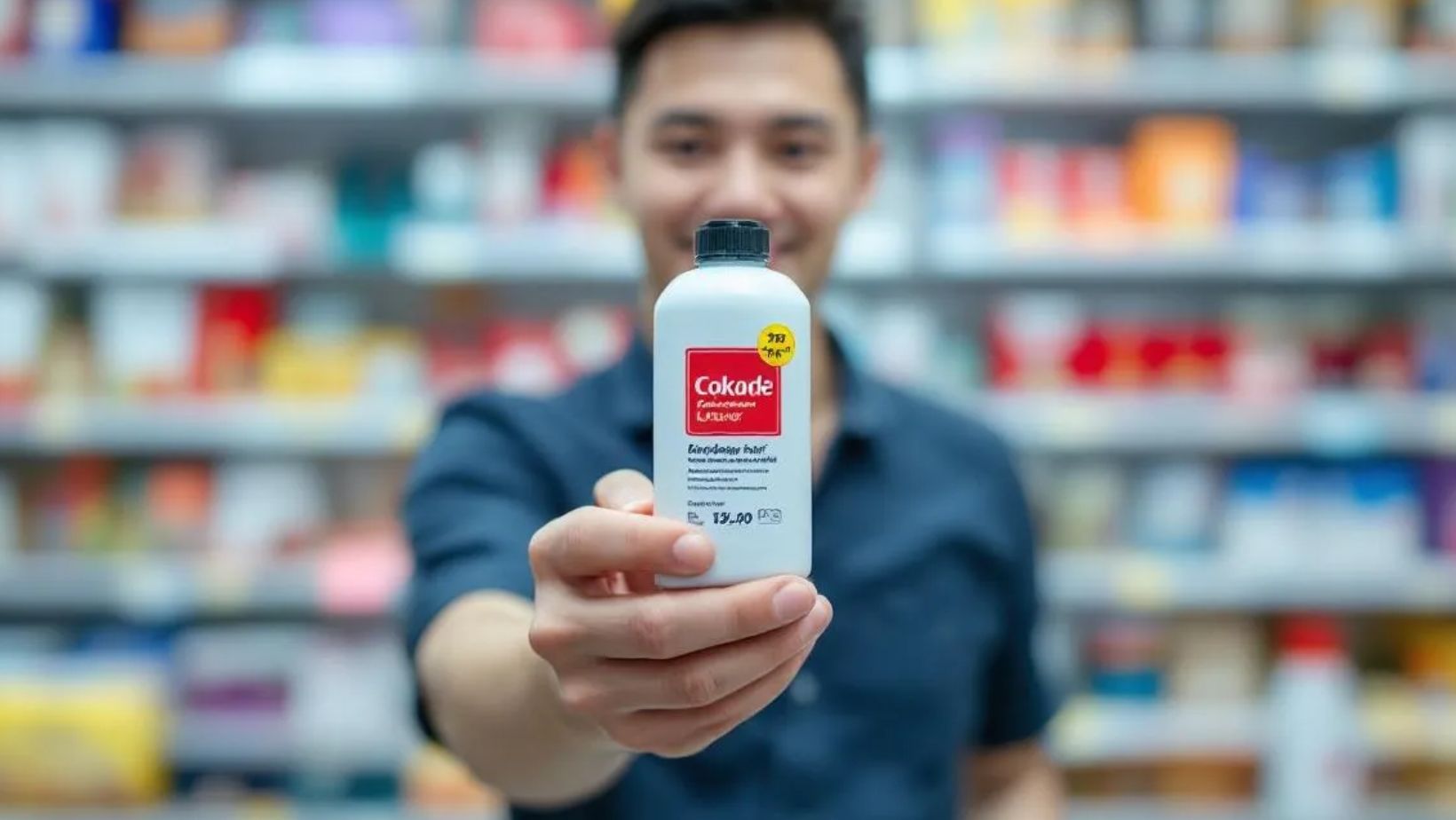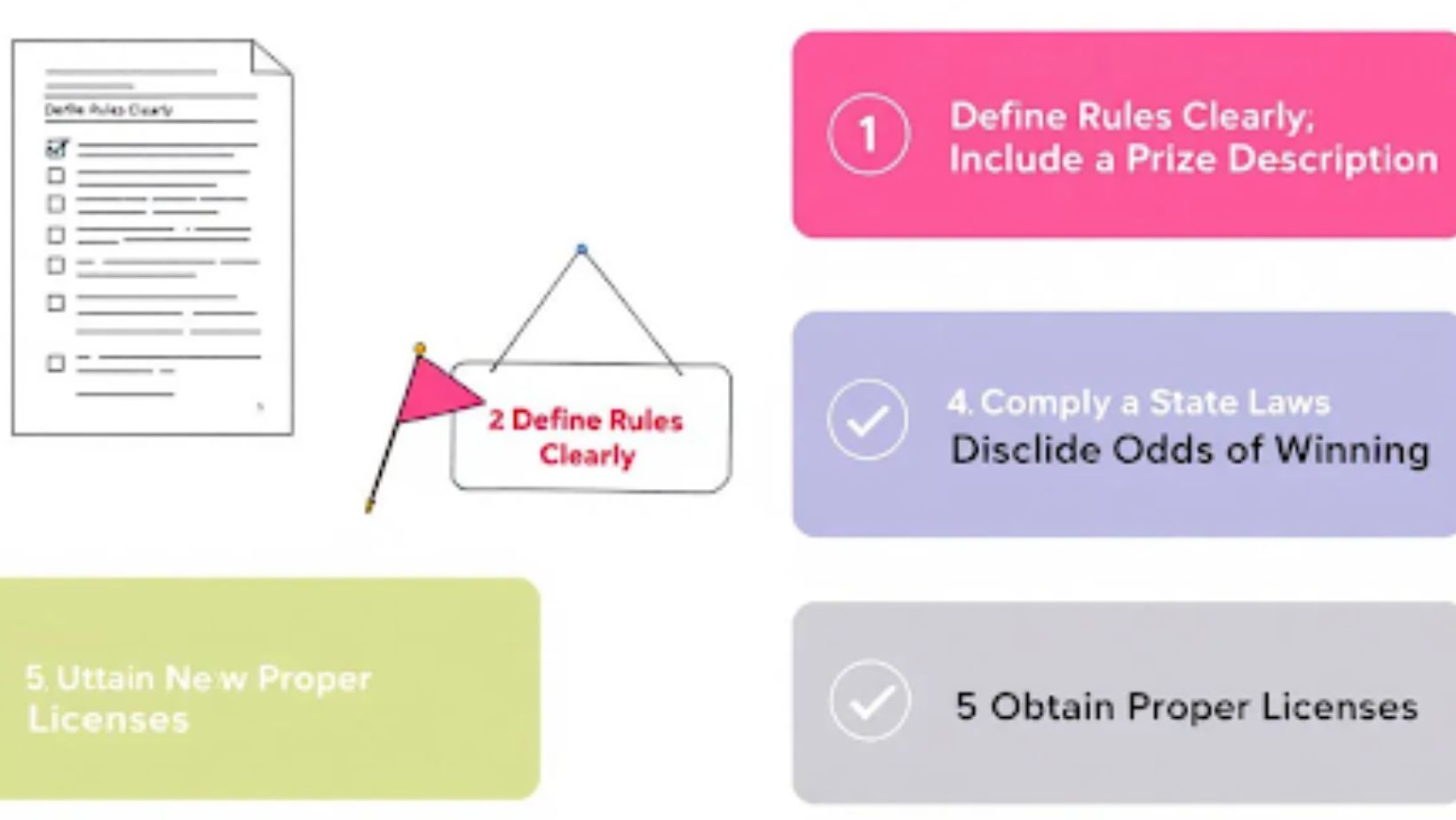Online sweepstakes have become one of the most effective ways for brands to boost engagement and attract new audiences in the digital age. From social media giveaways to national prize draws, sweepstakes marketing allows companies to generate excitement while building customer loyalty.
However, while sweepstakes can deliver tremendous results, they also come with a web of legal requirements that must be followed to avoid fines or reputational damage. In addition to legal requirements, brands must pay close attention to legal considerations and promotion laws, which govern marketing activities and are enforced by federal and state agencies. Many brands unintentionally overlook essential compliance steps, which can lead to serious legal exposure under both federal and state sweepstakes laws.
Following U.S. sweepstakes legal tips is essential to ensure compliance and avoid penalties. By understanding the distinctions between federal and state regulations, crafting transparent rules, and ensuring fair winner selection, you can confidently run a compliant and successful promotion — whether you’re organizing your own campaign or exploring established platforms like online sweepstakes Sixty6. Non-compliance can not only result in legal penalties but also significantly damage your company’s reputation.
1. Understand Federal vs. State Sweepstakes Laws
Sweepstakes in the United States are governed by both federal and state-level laws, meaning marketers must ensure compliance on multiple fronts. Sweepstakes law requires a thorough understanding of applicable laws at both the federal and state levels to avoid legal issues. Federally, agencies such as the Federal Trade Commission (FTC), Federal Communications Commission (FCC), and United States Postal Service (USPS) oversee aspects of advertising fairness, truth-in-promotion, and mail-based sweepstakes. These bodies ensure promotions are not deceptive or misleading.
At the state level, regulations vary significantly. Some states require registration and bonding before launching a sweepstakes above a certain prize threshold. Some states have similar laws to federal regulations, while others impose unique requirements that must be carefully reviewed. The most notable are New York, Florida, and Rhode Island, each with distinct filing requirements for promotional campaigns.
Here’s a quick breakdown:
| State | Registration Required | Prize Value Threshold | Notes |
| New York | Yes | $5,000+ | Must file before launch |
| Florida | Yes | $5,000+ | Bonding required |
| Rhode Island | Yes | $500+ | For retail-based sweepstakes |
Lotteries are typically operated by state governments, and specific registration requirements may apply in certain states. Understanding these state sweepstakes laws is crucial for nationwide campaigns. Noncompliance can lead to costly penalties or even disqualification of the sweepstakes in those states.
2. Avoid Creating an Illegal Lottery

A key aspect of U.S. sweepstakes compliance is ensuring your promotion doesn’t cross into illegal lottery territory. To stay compliant, you need to understand the difference between a sweepstake, contest, and lottery.
- Sweepstakes: Winners are chosen by chance.
- Contests: Winners are determined by skill or merit.
- Lotteries: Require a purchase or payment for a chance to win — and are illegal unless state-run.
Lotteries are defined by three elements: prize, chance, and consideration (also known as “purchase required” or an “entry fee” or any other form of value, whether monetary or non monetary, such as a significant amount of time or effort). The “consideration element” is a key legal term in distinguishing legal sweepstakes from illegal lotteries. To run a legal sweepstake, you must eliminate one of these — typically consideration — which is why the “no purchase necessary” rule and providing a free entry method are non-negotiable.
Example: A coffee brand launches a sweepstake where customers must buy a latte to enter. Even if the prize is modest, this could be deemed an illegal lottery under U.S. law because it requires payment for entry. Requiring a significant amount of effort or an entry fee as an entry method can also create legal problems. To fix this, the brand should include a free, alternative method of entry such as mail-in participation.
Avoiding the “lottery trap” is one of the most fundamental U.S. sweepstakes legal tips for any business running promotions.
3. Draft Clear and Transparent Official Rules
Every legal sweepstake must have official rules that are easy for participants to find and understand. These rules act as a binding contract between the sponsor and participants and are essential for transparency and legal protection.
Your official sweepstakes rules should include:
- Entry requirements: clearly define all necessary conditions for participation, including eligibility, legal, and verification criteria
- Eligibility requirements: minimum age, residency restrictions, and any disqualifications
- Entry methods: include both paid and free entry options if applicable, and provide a clearly disclosed alternate method of entry (AMOE) or method of entry AMOE to ensure equal opportunity for all participants
- Start and end dates: specify time zones for clarity
- Prize descriptions and odds of winning: detail all the prizes available, including total number, individual values, total value, and how winners are chosen; for contests, specify if winners are selected based on specific criteria
- Sponsor contact information: include company name, address, and support email
Here’s a sample rule outline to guide you:
OFFICIAL RULES
NO PURCHASE NECESSARY TO ENTER OR WIN.
Eligibility: Open to legal U.S. residents, 18 years or older.
Promotion Period: Begins at 12:00 AM EST on [date] and ends at 11:59 PM EST on [date].
How to Enter: Visit [website/link] or mail your entry to [address]. An alternate method of entry (AMOE) or method of entry AMOE must be provided and clearly disclosed, offering a free way to enter and ensuring equal opportunity for all participants.
Prizes: [List all the prizes and approximate retail value].
Odds of Winning: Depend on number of eligible entries received.
Sweepstakes Winner Notification: The sweepstakes winner will be notified via [method, e.g., email or phone] and may be publicly announced to boost engagement.
Sponsor: [Company Name, Address].
Ensure that your rules comply with FTC sweepstakes guidelines and consumer protection laws. A well-drafted set of rules not only builds credibility but also protects your brand from disputes.
4. Ensure Proper Disclosures and Advertising Practices

Honesty and transparency are the cornerstones of legal sweepstakes marketing. Under FTC advertising regulations, all sweepstakes promotions must provide truthful information, clear disclaimers, and avoid deceptive claims. When planning your campaign, align your sweepstakes with your marketing goals while ensuring all aspects are legally compliant.
Every piece of promotional content — from ads to social media posts — must clearly state that no purchase is necessary and should never imply guaranteed chances of winning. If you work with influencers or affiliates, you must ensure disclosure of material connections, such as paid partnerships or sponsorships.
Here’s a quick sweepstakes compliance checklist for advertising:
- Avoid misleading prize claims or exaggerations
- Include “void where prohibited” notices in all materials
- Add disclaimers for social media posts (e.g., “#Sweepstakes” or “#Ad”)
- State clear entry deadlines and eligibility restrictions
- Follow platform specific rules and each social media platform’s own rules when promoting or running sweepstakes
Proper advertising practices not only satisfy sweepstakes regulations but also maintain participant trust and brand integrity. When using a social media platform, choose the one that best fits your audience and marketing goals, and always adhere to its own rules and platform specific rules. To run sweepstakes that increase sales and engagement, ensure you offer a free alternative method of entry and make the process accessible to all. Instant win games are another popular promotional format, but they require the same level of legal compliance and attention to disclosure as traditional sweepstakes.
5. Manage Winner Selection, Notification, and Tax Obligations
The final phase of any sweepstake involves winner selection, notification, and prize distribution — all of which must be handled transparently and in compliance with U.S. law.
Selection should be random, and the process documented to ensure fairness. All eligible participants must have an equal chance of winning, including those who enter via alternative methods, to maintain legal compliance and the integrity of the promotion. Notify winners promptly and secure written consent before using their name or likeness in marketing materials.
From a tax perspective, sweepstakes prize regulations require that any prize valued over $600 be reported to the IRS using Form 1099-MISC. Sponsors are responsible for issuing this form and maintaining accurate tax records.
Here’s a simple flow of the process:
Entry → Drawing → Winner Verification → Tax Reporting → Prize Distribution
Handling this process correctly is crucial for full U.S. sweepstakes compliance and avoiding future disputes or audits.
Bonus Tip — Keep Records and Monitor Compliance
Always maintain thorough documentation for your sweepstakes, including entry data, official rules, and correspondence with winners. The general recommendation is to retain records for at least one year after the promotion ends.
For large-scale or multi-state campaigns, consult a sweepstakes attorney familiar with federal and state sweepstakes laws. They can review your promotional materials, filings, and disclosures to ensure total compliance.
To further safeguard your promotion, use a legal checklist to confirm that all compliance steps are completed before, during, and after the campaign.
FAQ
Q1: Are sweepstakes legal in all U.S. states?Generally yes, but some states like New York and Florida require registration and bonding for prizes over specific thresholds. Sweepstakes offered in certain states may require additional steps to comply with local regulations. Always review state-specific rules before launch.
Q2: Do I need to offer a free method of entry?Absolutely. “No purchase necessary” is a cornerstone of legal sweepstakes rules and helps avoid classification as an illegal lottery.
Q3: Can I run a sweepstake on social media platforms?Yes, but ensure compliance with both U.S. sweepstakes laws and platform-specific policies on giveaways and promotions.
Q4: What happens if my sweepstake violates a state law?Violations can lead to fines, legal actions, or forced cancellation of the promotion. Consumer complaints can also trigger investigations by regulatory agencies, increasing the risk of enforcement actions.
Q5: What’s the difference between a sweepstake and a contest?Sweepstakes are games of chance, while contests rely on skill or merit, such as judged submissions or performance-based criteria. Examples include contest contests, skill based contests, essay contests, and photo contests. These types of contests often involve user generated content and encourage participants to create user generated content, which can boost engagement and brand awareness.
Conclusion
Running a sweepstake is an excellent way to connect with consumers and grow your brand — but only when done correctly. Following these U.S. sweepstakes legal tips ensures your campaign is both engaging and compliant with all relevant laws.
By understanding regulations, drafting clear rules, and following FTC advertising standards, you protect both your business and participants. Compliance not only minimizes risk but also builds trust and credibility with your audience.
Before launching your next sweepstake, consult a legal expert to make sure your campaign is compliant across all U.S. jurisdictions.

